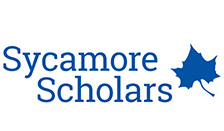Keywords
Clinical Practice in Athletic Training
Abstract
Context: The number of sport-related concussions (SRCs) is higher in adolescents than in other age groups and accounts for 32% of concussions. Athletes with attention-deficit hyperactivity disorder (ADHD) have a higher risk of previous history of concussion and future concussion risk compared with those without ADHD. People with ADHD present lower baseline scores of neurocognitive performances compared with those without ADHD. Neurocognitive deficits after SRC lead to increase risk of musculoskeletal injuries or another concussion after return to play (RTP) and affect RTP process. There is no consensus regarding the management of SRCs for those with ADHD. This scoping review aims to provide the currently available evidence regarding how ADHD impacts neurocognitive test performance after sustaining SRCs in adolescent athletes. Methods: A scoping review of literature published in English was conducted in February 2024 using Google Scholar. Key terms included “adolescent,” “athlete,” “sport-related concussion,” “ADHD,” “neurocognitive test,” and “Impact test.” Articles were excluded if they were systematic reviews or meta-analyses and included participants with a history of brain surgery or meningitis due to the influence on neurocognitive performance. Articles written in English and including adolescent populations were inclusion criteria. The search yielded 11 studies for possible inclusion. Of these, three were included based on inclusion criteria. Results: All neurocognitive performance was measured using the ImPACT test. One study showed that among the 4 compositions of the neurocognitive test, verbal memory (ADHD: 72.1±16.60, Control: 79.1±13.40) and visual motor speed (29.9±8.60, 35.3±8.30) were significantly decreased (p<0.01) post-SRC in those with ADHD compared with those without ADHD. Another study found among those with ADHD not taking medication, both verbal memory (0.87(0.67-1.06), 0.68 (0.64-0.71)) was and reaction time (1.25 (0.83-1.66), 0.96 (0.90-1.01)) was showed significantly greater standard deviation from the baseline(p<0.05) compared with individuals without ADHD. Finally, verbal memory (82.8 ± 12.80, 86.9 ± 10.66), visual memory (73.0±14.17, 77.8±12.76), and visual motor (36.0±7.28, 38.5±7.07) were significantly decreased and reaction time (0.63±0.10, 0.60±0.10) was significantly increased (p<0.01) in patients with ADHD. Conclusions: As a neurodevelopment disorder, ADHD results in an individual having trouble paying attention (e.g., listening, following through on instructions, being distracted, and organizing) and/or being hyperactive (e.g., difficulty waiting, fidgeting). Existing research shows adolescent athletes with ADHD tend to have worse neurocognitive test and symptom performance following acute SRCs compared with those without ADHD. Clinicians must evaluate the baseline assessment for this population and create a relationship among parents, coaches, school nurses, and teachers to discuss care plans that may be unique for ADHD patients. Considering the number of adolescent athletes with ADHD and the potential impact of SRC among this population, the amount of research on recovery and return to learning challenges is lacking.
Recommended Citation
Chiba, T and Emerson, DM
(2024)
"How Comorbidity with ADHD Impacts on Neurocognitive Performance in Adolescents After Sport-Related Concussions: A Scoping Review,"
Clinical Practice in Athletic Training: Vol. 7:
Iss.
3, Article 20.
Available at:
https://scholars.indianastate.edu/clinat/vol7/iss3/20
Included in
Kinesiotherapy Commons, Medical Biophysics Commons, Musculoskeletal, Neural, and Ocular Physiology Commons, Orthopedics Commons, Other Medicine and Health Sciences Commons, Physical Therapy Commons, Physiological Processes Commons, Physiotherapy Commons, Recreational Therapy Commons, Sports Medicine Commons, Sports Sciences Commons

